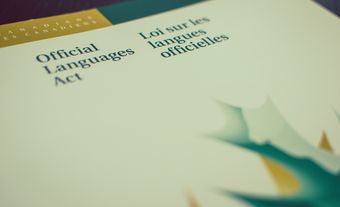Public Policy
Public Policy generally denotes both the general purpose of government action and the views on the best or preferred means of carrying it out; more specifically it refers to government actions designed to achieve one or more objectives. "Policy" can have at least 2 distinct meanings: it can refer both to how something is done (rules and procedures), which may be called administrative policy, or to what is being done, eg, substantive programs. Studies of public policy often employ both meanings. In order to make various actions more coherent, governments usually formulate major priorities that form the basis of general policies, eg, social, economic and foreign policy, which in turn encompass more particular sectoral policies, eg, trade, police, health care, agriculture. AGRICULTURAL POLICY can therefore be described as a sectoral policy created to meet particular agricultural objectives that are based on more general policies, eg, ECONOMIC POLICY.
Many measures or means are often necessary to implement policy, and these are frequently controversial because they involve coercion or the threat of a penalty if they are not followed. In every instance, the measures involve resources (levied, borrowed or purchased, produced and consumed, accumulated, distributed, loaned or sold) and rules (bans, obligations, authorizations, permissions, rights and privileges to do or not to do something). Government policymaking is nominally a response both to problems and opportunities.
Policies (both ends and means) are also controversial because they are influenced by the general ideologies of the major political parties, the struggle for political power and the interests of PRESSURE GROUPS. Policies already in effect are also subject to change when the problems they are intended to solve persist or when new problems arise or are added to them. Government policies reflect changes in society but they also produce them.
Initially government policies were designed to guarantee the physical safety of the population and to maintain peace. With the increasing production of goods and the growth of trade, governments intervened to regulate the so-called market economy and to facilitate more production by providing infrastructures such as railways, roads, canals, aqueducts, ports and warehouses. In response to urbanization and the consequent transformation of society, governments developed EDUCATION and HEALTH POLICIES and launched vast land-development operations. After WWII, particularly as part of their social-welfare policy, they have intervened in the stabilization of production and services, in health insurance, and in INCOME DISTRIBUTION.
The federal government has jurisdiction over a number of sectors, sometimes exclusively, eg, EXTERNAL RELATIONS, DEFENCE POLICY, currency, weights and measures, and patents, and sometimes in co-operation with provincial governments, eg, scientific research and agriculture (see DISTRIBUTION OF POWERS). Other policy areas generally fall under local or regional jurisdiction. For example, education, highways and local public works are primarily the responsibility of provincial governments. Provincial governments also intervene in a large number of other sectors, including electrical-energy production, mining and forestry development, health-care services and police.
Government activities are financed essentially through taxes, a generalized obligatory deduction with no compensation other than the benefits derived from certain government policies. Taxes, which are the compulsory price for these benefits, are not negotiated with individual taxpayers but are the result of government decisions formulated within the framework of FISCAL POLICY - one of the most important and controversial policies of any government. In Canada, government policies result from many conflicting points of view, not all of which have an equal opportunity of being implemented.
Policy Studies
Studies of public policy can be characterized as historical, descriptive, legal and normative. In addition, most political scientists use a case-study format and are concerned with the merits of a policy, with suggesting solutions to public-policy problems, and with influencing the policy under study. As a result of efforts to classify policies, distinctions have been made between the substance of policies, the institutions making them, the people whom they are meant to affect, periods of time in which they have been followed, the ideology and values they reflect, the extent of their support and the level of government responsible for their implementation.
See alsoCULTURAL POLICY; ENERGY POLICY; FISHERIES POLICY; INDUSTRIAL STRATEGY; LABOUR POLICY; LANGUAGE POLICY; MONETARY POLICY; MUSEUM POLICY; NATIONAL POLICY.

 Share on Facebook
Share on Facebook Share on X
Share on X Share by Email
Share by Email Share on Google Classroom
Share on Google Classroom


